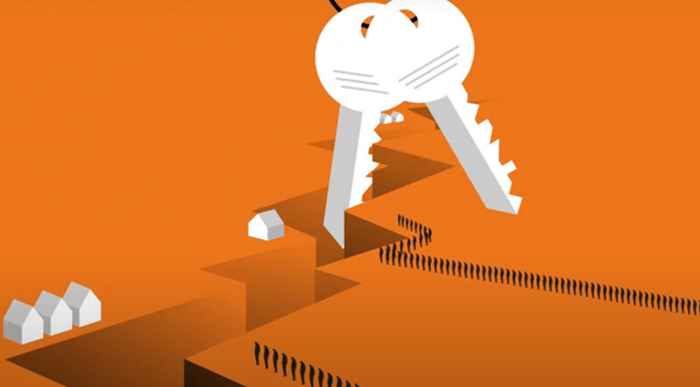Why family, housing and inequality are so connected
22 February 2023

The economy around housing and real estate has boomed and bust and boomed again. ‘These are the big stories of transformations that happened in housing and society and that deepened connections between family, homes and the wider economy’, state Ronald and Arundel. In their new book they collect contributions by different authors on how transformations in housing and society influenced families, how families play key roles in the accumulation of housing wealth, and how this has driven growing inequalities within and between generations.
Massive growth of homeownership
‘Historically we saw a massive growth of homeownership since the 1970’s and 1980’s when many people could buy a house and there was a relatively easy flow of young people into the housing market’, begins Arundel on the story of families and housing. ‘Entering the housing market became a norm, creating a home-owner society. Not everyone was included, but for a large share of society housing became relatively affordable. We can see this as a period that was more equal than now and where the family did not play such an obvious role yet.’
‘Then comes the story of mortgage sector financialization contributing in large part to the (almost) failure of the global economy in the late-2000s and the Great Recession that followed in the early-2010s’, adds Ronald. ‘After the burst of the mortgage bubble and the financial crisis, new money started to flow into the housing market. This time from international companies looking for investments in actual property, and later also from small scale landlords who started to buy more properties to rent out.’
Global housing wealth is now valued at around US$220 trillion, exceeding the combined worth of all other asset classes by around a third
Ronald explains how this new money stimulated the resurgence of house prices and an international housing affordability crisis, while at the same time, governments called for stricter mortgage regulation in response to the financial crisis. ‘Still, housing remained this essential asset for people and the norm of what is expected for many households and families.’
Neoliberalism brought the family back in
Ronald and Arundel argue that this latest period of neoliberalisation has brought the family back in. ‘The children of the homeowners who could enter the housing market en masse, can no longer enter under the same conditions. At the same time this generation has been socialized around the pursuit of homeownership. An implication of a neoliberal economy is that everybody will be individualized as economic actors. But in reality, people have become more interdependent on the scale of the family and families increasingly mobilised around their homes as assets to accumulate wealth.’
Relying on the family creates inequality
Arundel stresses how this dependency on the family led to greater differentiation between households and increased inequality within and between generations. ‘The homeowning generations may have the resources to help their children, but older generations without assets do not.’
‘We see a divide between those who are renting and those who own’, adds Ronald, ‘and also within who owns. Families that accumulate and families that disaccumulate. Better off families live in better off properties in better off neighbourhoods and accumulate more, allowing their kids to buy property. Families that could just afford housing in not such great areas with not such great schools cannot tap into this wealth for their children.’
And now new changes are afoot
Since they finished their book the housing market has changed again. ‘Before the energy crisis and huge inflation, we could not have predicted that mortgage rates would rise like they did and house prices would drop’, tells Ronald. The authors are however skeptical regarding the capacity of lower house prices to make the housing market more equal. ‘Many people will not be able to get a mortgage, or will only be able to get a much smaller one, because interest rates are so high and regulations have become more strict’, explains Ronald. ‘People who have assets or cash in the bank, and who do not need a loan, are the ones who truly profit from current situation.’
‘It is thus very likely that these changes might simply intensify divides between homeowners, and may increase the role for family support in securing housing’, the authors add.
Book details
Richard Ronald & Rowan Arundel (eds), 2023, Families, Housing and Property Wealth in a Neoliberal World. Routledge. Go to the publisher website